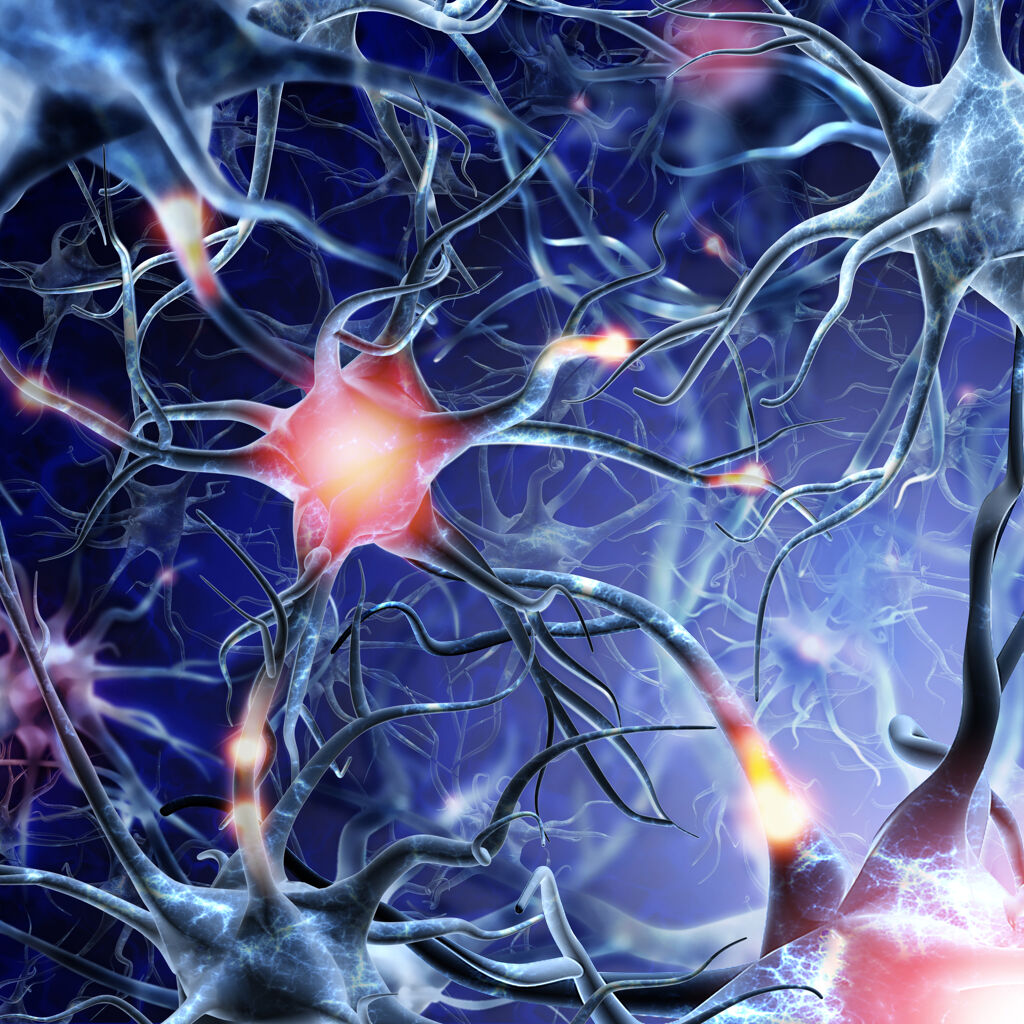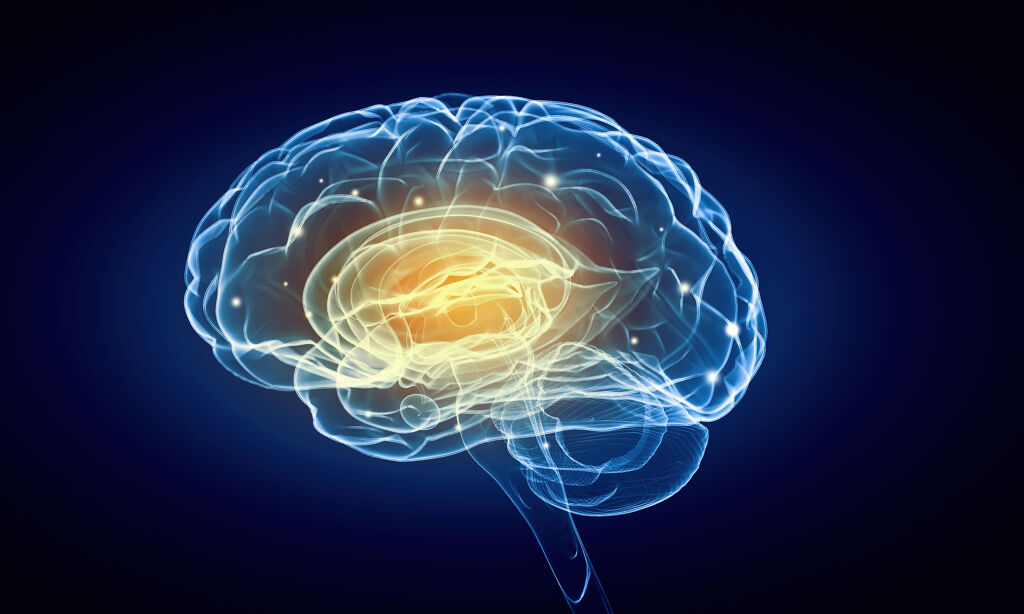Autoantibodies Against Brain Tissue

Do you have symptoms of neurological or psychiatric conditions? Do you have mental health issues?
There are a number of causes for these conditions. It can sometimes be challenging to identify the actual causes. It is often related to gut health, inflammation in the brain (which we call neuroinflammation), infection, diet, metabolic syndrome, brain injury or possibly other reasons.
One recently identified factor is an autoimmune process in the brain. Autoimmune processes are increasingly being identified in more and more serious or chronic diseases. This holds true for neurological and neuropsychiatric disorders as well. Research in these areas is getting very interesting as this new root cause is being further investigated.
Today we talk about autoantibodies against brain tissue and how these can contribute to neuropsychiatric issues. It’s a fairly scientific topic but we are going to break it down for you step by step.
If you suffer from mental health, psychiatric or neurological symptoms then read on for details about autoantibodies against brain tissue and how we can help.
In this blog on autoantibodies against brain tissue, you will learn:
- What are antibodies and autoantibodies
- What happens if you have autoantibodies against brain tissue
- How infection can be a cause of autoantibodies against brain tissue
- Testing for autoantibodies against brain tissue
- How to address autoantibodies against brain tissue with Functional Medicine
Introduction
The scientific knowledge that autoantibodies can be made against brain tissue and cause symptoms is an exciting new area of research. To date, more than 25 types of autoantibodies have been identified in patients with neurological disease (Prüss, 2021). Some of these autoantibodies are directly pathogenic (Prüss, 2021).
There are different mechanisms or ways in which antibodies cause disease. But first, let’s review the basic concepts of antibodies and autoantibodies….
Antibodies & Autoantibodies: What Are They?
An antibody is a protein. It is made by the immune system when harmful substances are detected within the body. These can be various types of foreign objects such as pathogenic bacteria, viruses, fungi, parasites or chemicals. They are called antigens.
The immune system is responsible for making antibodies to fight these antigens and protect the body from these harmful molecules.
An autoantibody is also an antibody that the immune system makes. But in this case, it fights against the proteins of the individual’s own body or cells.
Autoantibodies are involved in autoimmune disease and autoimmune processes, causing the immune system to mistakenly attack self tissue. Some autoimmune diseases are caused by autoantibodies.
Autoantibodies are antibodies that mistakenly target and react to a person’s own tissues or organs. Autoantibodies are produced when the immune system fails to distinguish between ‘self’ and ‘non-self’ tissue. Autoantibodies can directly destroy cells that have the specific self proteins on them. Or autoantibodies make it easier for other immune cells to destroy these self proteins.
What is the Difference Between an Antibody and Autoantibody?
Think of autoantibodies as misguided, or pathogenic, antibodies. Instead of reacting to the antigen, or foreign molecule, they respond to the body’s own, or self, proteins. This causes an abnormal immune response that attacks cells, tissues and organs of the body rather than the foreign molecule (i.e., virus or bacteria) in the body. This is basically how the autoimmune process, or an autoimmune disease, starts.
What are Autoantibodies Against Brain Tissue?
Autoantibodies against brain tissue are autoantibodies to different brain proteins. They will attack brain tissue of a person’s body. Specific autoantibodies to brain tissue could cause severe mental disturbances (Zong S, 2017). They can cause damage either directly or in conjunction with other inflammatory molecules (Mader S, 2017). Autoantibodies to brain tissue can lead to acute brain pathology, which may be reversible (Mader S, 2017). Or they may trigger irreversible damage that persists even after the antibodies are no longer present (Mader S, 2017).
Neurological conditions like anxiety disorders, schizophrenia, bipolar disorders, epilepsy or depression can be caused by autoantibodies to brain tissue. The symptoms of these diseases may be due to autoantibodies in the brain (Zong S, 2017).
Autoantibodies & Leaky Brain: How Do Autoantibodies Get into The Brain?
We recently wrote about a condition called Leaky Brain. Circulating autoantibodies can breach the blood–brain barrier, or BBB, if it is leaky. These autoantibodies can go through a leaky BBB and bind to antigens within the brain.
Different autoantibodies in the brain may be linked to different diseases. Research in this area is still a work in progress and medical knowledge is still growing (Zong, 2019).
Autoantibodies can be found at low levels even in healthy people. They may be present years before any disease onset. If the BBB is healthy and intact, circulating autoantibodies are unable to enter the brain in high enough amounts to cause pathology. These circulating autoantibodies can remain apathogenic, i.e., not cause any health problems, if, very importantly, the BBB is not breached (Meinl E, 2010).
If, however, the brain is leaky, then these autoantibodies can enter the brain and attack self brain tissue. The extent of the damage will depend on how many autoantibodies there are, which ones and how long they are left untreated.
What Happens If You Have Autoantibodies Against Brain Tissue?
Autoantibodies to brain tissue can lead to neurodegeneration and brain diseases. These autoimmune processes can contribute in a subtle way to symptoms of memory issues, behavioral abnormalities, seizures, psychosis, movement disorders, cognition and psychiatric dysfunction (Prüss, 2021).
Several well-established autoantibodies can occur in patients with progressive cognitive decline or movement disorders and mimic classic neurodegenerative diseases. In some cases, the symptoms are caused by the autoantibodies. But they mimic a neurodegenerative disease. This can lead to delayed diagnosis and incorrect treatments (Prüss, 2021).
There are also autoantibodies in established neurodegenerative diseases. They may develop after the initial neurodegeneration. It is not clear yet whether the autoantibodies are innocent bystanders of the neurodegenerative process or whether the autoantibodies are causing damage and shaping the disease progression (Prüss, 2021).
More & More Autoantibodies to Brain Tissue Are Being Discovered
In antibody-mediated neurological diseases, the underlying autoantibodies directly damage and impact brain function (Prüss, 2021). It is still somewhat controversial that these autoantibodies may be the primary cause of neurodegeneration.
Different autoantibodies can cause different diseases (Prüss, 2021). With the ongoing research being done, more autoantibodies will be discovered to be involved in different neurological diseases (Prüss, 2021).
The ways, or mechanisms, in which these autoantibodies cause disease in the brain are varied. There is not just one mechanism. It is thought that autoimmunity is involved in many more neurological diseases than previously thought. These diseases range from encephalitis and psychosis to movement disorders, neurodegenerative diseases and neurodevelopmental abnormalities during pregnancy (Prüss, 2021).
Infections, Antibodies and Brain Inflammation
Infection is increasingly being seen as a cause of mental health and neurological issues. An infection can trigger an immune response that becomes overactivated. The immune system goes into overdrive and creates autoantibodies to brain tissue. This can trigger an autoimmune process. The immune system then attacks self brain tissue, causing neurological or psychiatric problems.
The types of infections that can cause neurological, neuropsychiatric and mental health include common, and uncommon, infections:
- Strep throat
- Lyme disease
- Lyme co-infections
- Mold illness
- Viral infections
- Bacterial infections, although this is less common
See our blog here on infections and mental health
We have already written about how strep throat can cause PANDAS and other types of infection like Lyme, Covid and others can cause PANS. See here and here.
What happens is a phenomenon called molecular mimicry. The molecule of the infection looks similar to a molecule of a type of body tissue. The immune system mistakenly attacks healthy tissue because it looks like a particular infection molecule, such as a bacteria or virus. This is how the infection can trigger an autoimmune response resulting in the onset of neurologic and/or psychiatric symptoms.
To Read About Blog Topic, Scroll Down
Want To Work With Our Clinic?
Do you have a chronic or mystery illness that no one has been able to help you with? Are you simply wanting to re-connect with a healthier version of yourself? It’s Time To Finally Feel Better!
How does Infection Cause Mental Illness? (Pape K, 2019):
- Molecular mimicry can trigger an autoimmune process
- Autoantibodies can trigger an autoimmune process
- Disturbance to the blood-brain barrier (which protects the brain from toxins) leading to leaky brain
- Neuroinflammation negatively affects brain health. Depression, anxiety, autism, dementia, schizophrenia, ADD, ALS, MS, Alzheimer’s and Parkinson’s are all inflammatory diseases of the brain. Neuroinflammation can be triggered by many types of molecules (activated microglial cells or pro-inflammatory cytokines of the immune system, infections, toxins and others).
Autoimmune processes in the brain, from whatever cause, will ultimately lead to neuroinflammation. This inflammation is part of the development of neurological, neuropsychiatric diseases and mental health issues.
How Do You Test for Autoantibodies Against Brain Tissue?
The Cunningham Panel and the Neural Zoomer Plus are lab tests to identify brain autoantibodies. Certain labs can offer these tests.
The Cunningham Panel identifies autoimmune dysfunction. It is a blood test which measures levels of circulating autoantibodies associated with certain neurologic and psychiatric symptoms. Elevated levels indicate that symptoms may be due to an infection-driven autoimmune problem, rather than a neuropsychiatric disorder.
The Cunningham Panel is 5 tests which measure circulating levels of specific autoantibodies in a patient’s blood serum sample. The autoantibodies the test looks for can trigger a variety of neurologic and/or psychiatric symptoms. The test help to identify an autoimmune process against certain targets in the brain. This information helps to inform treatment of the condition.
However, the Cunningham Panel is controversial and some say it is not reliable. One study on the Cunningham Panel found a positive value in 86% of healthy controls in the study (Bejerot S, 2019). This compares to a positive value found in 92% of the patients with PANS/PANDAS in the same study (Bejerot S, 2019). The study concluded that the Cunningham Panel may show false positives among healthy people, making it less reliable.
The Neural Zoomer Plus Test
The Neural Zoomer Plus test is another test for brain autoantibodies. It assesses a person’s reactivity to 48 neurological antigens. These antigens are thought to be linked to various neurological diseases. They include antigens involved in blood brain barrier disruption, brain autoimmunity, brain inflammation, infections (such as herpes, strep throat, etc.) and others.
The test can be done either as a serum blood test or a blood spot test. It is a comprehensive test to identify early (and not-so-early) problems in the brain and nervous system. This test can detect underlying inflammatory autoimmune responses that may be causing symptoms related to mood, memory, aging, balance, nervous function, movement, pain and others.
How can Autoantibodies to Brain Tissue be Treated?
In conventional medicine, there are pharmaceutical drugs used to treat autoimmune diseases and autoimmune processes. These drugs act against antibody -mediated neurological diseases. They systemically suppress the immune system. This is typically how autoimmune diseases are treated. The objective is to calm down the overreaction of the immune system to stop the autoimmune attack on self tissue. These drugs are more effective if given quickly in order to prevent long lasting damage, particularly on memory and behavior (Prüss, 2021).
It is somewhat controversial that this type of immunotherapy to combat and suppress the autoimmune process caused by the autoantibodies can delay, stop or even prevent a neurodegenerative disease (Prüss, 2021).
New research is now focusing on the development of specific antibody-specific immunotherapy drugs (Prüss, 2021). These therapies try to deactivate the specific autoantibodies. The current treatment does not target the specific antibodies that create the disease. The current medications suppress the immune system globally. There are side effects from global suppression of the entire immune system. If medications can target only the specific autoantibodies causing the symptoms, then the autoimmune reaction can be stopped without downregulating the entire immune system. This could be done via inducing apoptosis (or cell death) of the precise autoantibody (Prüss, 2021).
How Can Functional Medicine Treat Autoantibodies Against Brain Tissue?
With Functional Medicine, autoimmune disease and processes can be treated. In our Functional Medicine clinic, we design a personalized program tailored to each individual patient’s case. But there are, of course, some general similarities that we follow for all cases of autoimmunity.
We have written a step-by-step treatment plan for Leaky Gut/ Brain here. Leaky gut (read about leaky gut here) is part of the autoimmune picture. Leaky brain (read about leaky brain here) is part of the issue with autoantibodies.
Our step-by-step treatment plan for these issues will help with autoantibodies against brain tissue causing neurological symptoms. Alternatively, you can reach out to us at our clinic for an individualized approach to your specific case.
Treatment Steps Include:
- Heal leaky gut and other gut issues: Leaky gut is part of an autoimmune disease. We incorporate a comprehensive gut healing approach in all autoimmune cases to resolve leaky gut and other possible gut issues.
- Reduce inflammation: We need to get to the root causes of inflammation and an overactivated immune system. Then we treat these causes, reduce inflammation and calm the immune system. Causes of inflammation can be many-fold but typically include underlying infections, gut issues, unsuitable diet choices, other lifestyle issues like poor sleep or a sedentary lifestyle, excessive stress, substance abuse of alcohol or drugs, toxin overload and detoxification issues and others.
- Adopt an anti-inflammatory diet: We recommend reducing all dietary sources of inflammation. We may look for food sensitivities or intolerances then switch a person to a diet that is anti-inflammatory. The best examples of this are either the gluten-free Mediterranean diet or the Paleo diet.
- Seek help if you have issues with smoking cigarettes, excessive alcohol or drugs.
- Seek help if you have issues with excessive stress, poor sleep, a sedentary lifestyle or other unhealthy lifestyle habits.
In our clinic, we can address neurological or mental health issues. We work regularly with autoimmunity and can treat these types or conditions or processes.
Summary
- Antibodies are part of the immune system designed to protect us from foreign molecules such as viruses, bacteria, toxins and others.
- Sometimes the immune system can get overactivated and mistakenly produce molecules called autoantibodies. These autoantibodies attack tissue of the body and trigger an autoimmune process or disease.
- Specific autoantibodies to brain tissue exist. These autoantibodies against brain tissue can cause neurological symptoms and are often involved in neurological, neuropsychiatric and mental health disorders.
- There are long term consequences for your health if you have these autoantibodies that manage to cross the blood brain barrier and start an autoimmune process in the brain.
- Treatment is possible with conventional medicine by using pharmaceutical medications. Treatment is possible with Functional Medicine using diet, lifestyle, root cause identification and resolution and other methods.
** Follow us for our next Blog on the Functional Medicine approach to Chronic Disease **
As always, please get in touch with us. If you or someone you know is struggling with cognitive or neurological symptoms, contact our clinic today. We can work on any issue(s) and improve your health. Book a free health evaluation call with us today, to see how we can help you with your concerns. We can answer your questions and help you book an initial consult with one of the functional medicine doctors in our clinic.
Are You Suffering From A Chronic Illness?
Does your current health situation look like this…
- Do you feel that you have tried many things and either nothing works, or the treatment does not hold?
- Have you been told that there is nothing that can be done to reverse your illness and you just need to manage symptoms?
- Does your illness impact your work, your family, your happiness and your social life?
We specialize in finding answers and solutions for complicated chronic illness when people feel like they have tried everything. If this sounds like you, book a free call with us to see if we are the right fit for your health goals.
Dr. Miles has spoken for the following organizations:
















